I have written a number of posts in the last year about the value of labels in exhibits. There are a number of people who don’t think they are of much use visitors. The opinions of those who are against them range from the language being too academic for the layperson to the concept people should form their own impressions of a work rather than depending on the labels.
This being said, the local museum has a photography exhibition of cemeteries around the state of Colorado. The exhibition is causing some positive reactions among visitors and I think it may be in large part due to the artist, Sean Brubaker’s, comments on the labels. He offers his point of view on each of his images which makes them highly relatable.
For instance, in one case he talks about having a problem with the concept of diminishing returns when he lingered far too long in the face of a thunderstorm that sought to smite him.
(Out of copyright concerns for posting photos of the artist’s photos, I am only including the labels. I apologize to readers who feel they are missing the full context of the labels.)
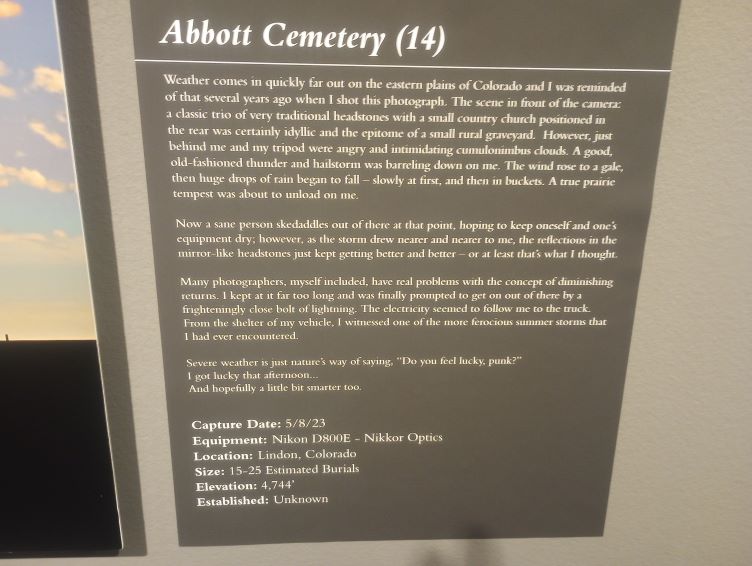
In another he talks about the cemetery next to his middle school where he had his first kiss.
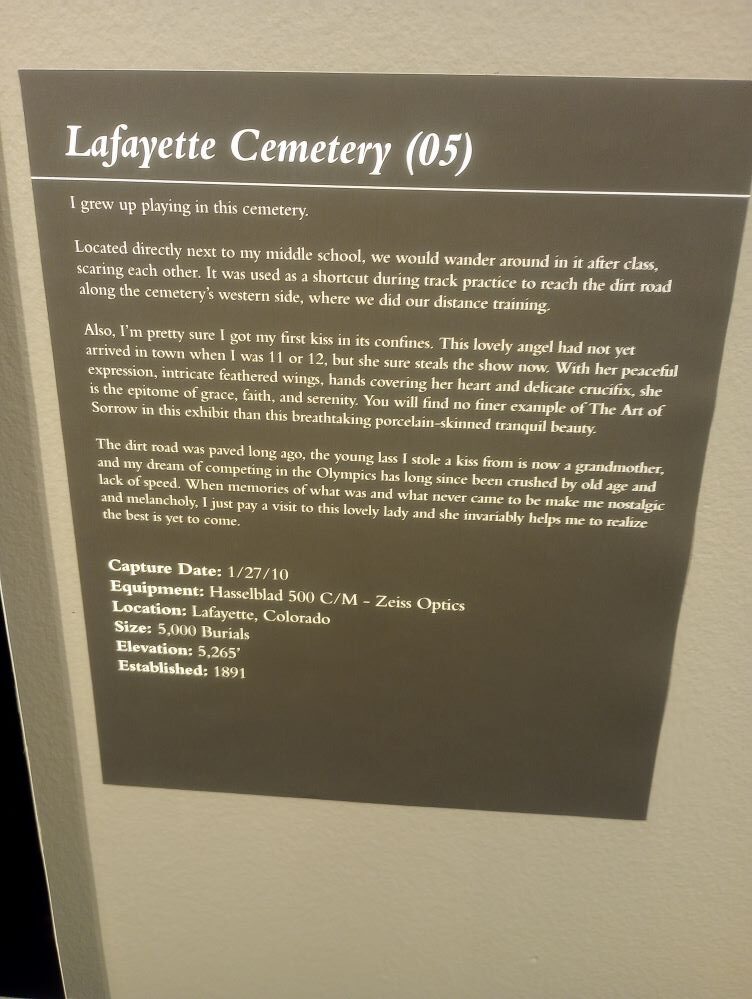
In another he acknowledges that people have good reason for decorating the graves of loved ones with fake flowers, but admonishes them to at least remove the bar code stickers. (This commentary is the museum director’s favorite.)
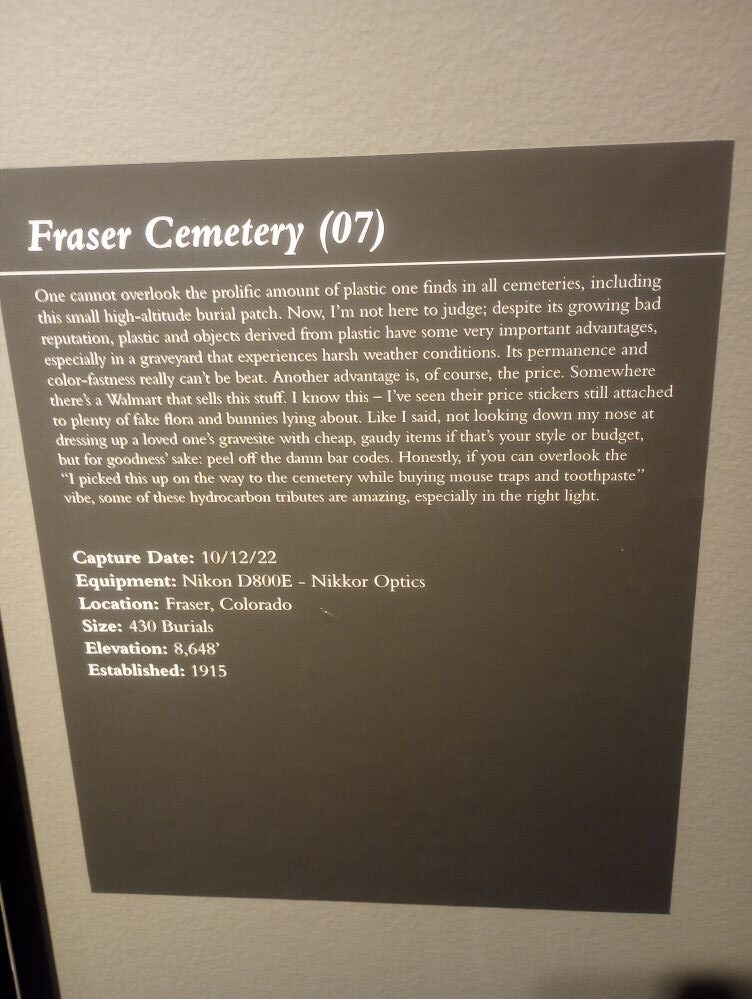
He acknowledges the creepiness inherent to graveyards and says what we are all thinking—are the heavy chains on mausoleums meant to keep people out, or the prevent the dead from escaping?
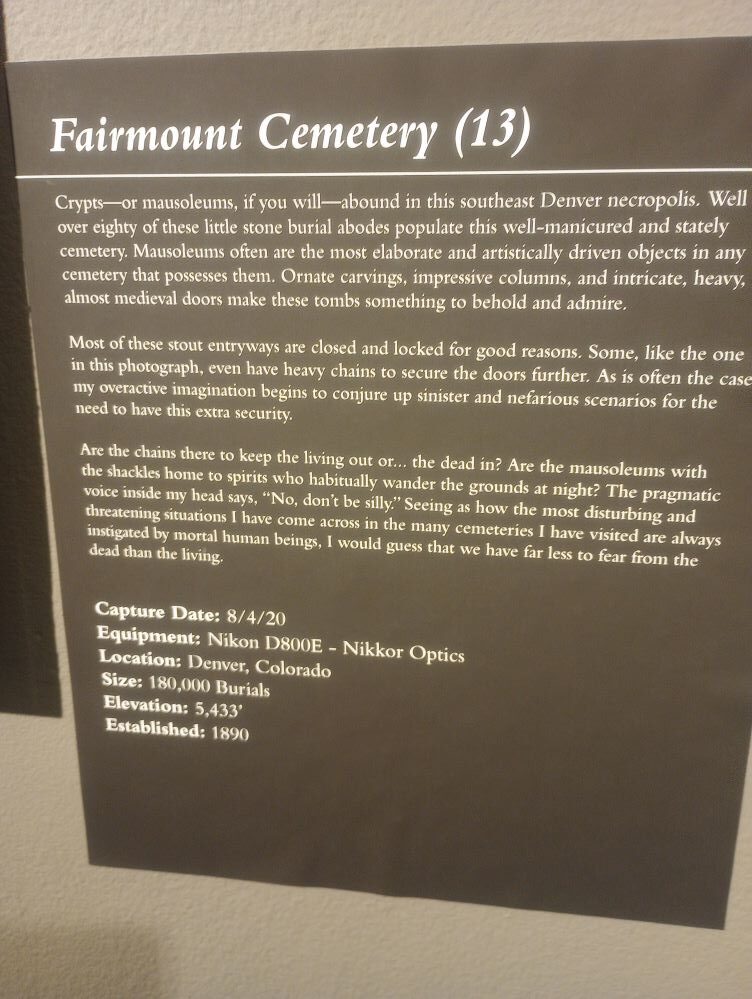
In the same vein, he states the three rules for a cemetery near Denver are 1-Don’t pick p anything sharp; 2-Don’t mess with the feral animals; 3- get the hell out before darkness descends.
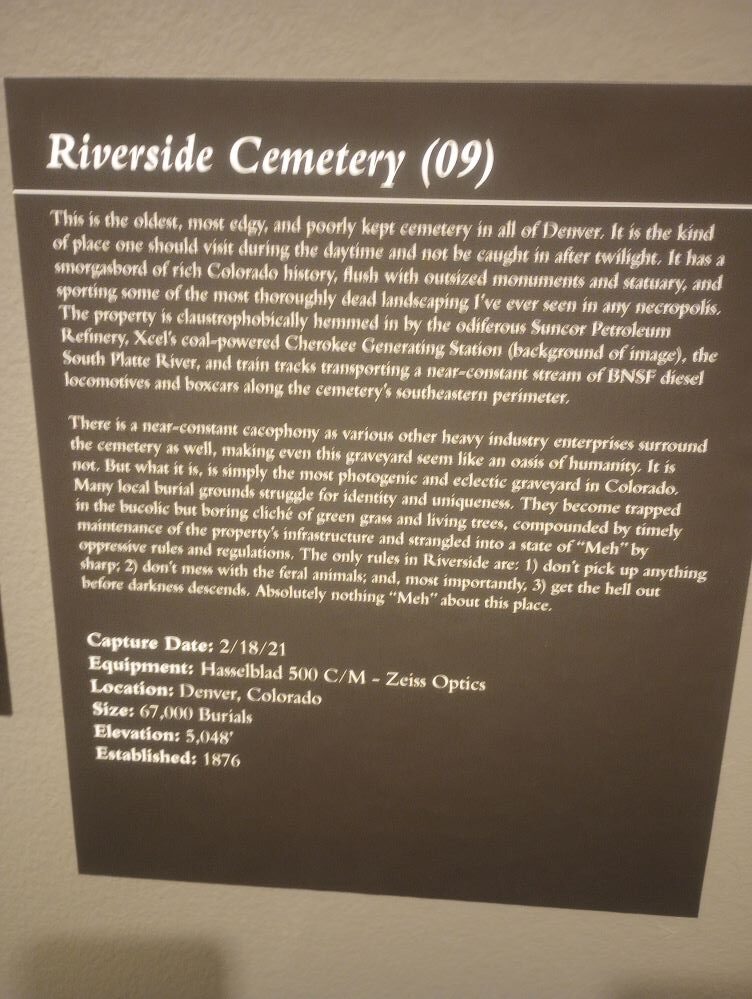
Finally, I was amused by this one that asked if a mysterious cabal of artists is decorating headstones of children who died too young to have families of their own…or did the ghost of the child weave the crown which adorned the stone.
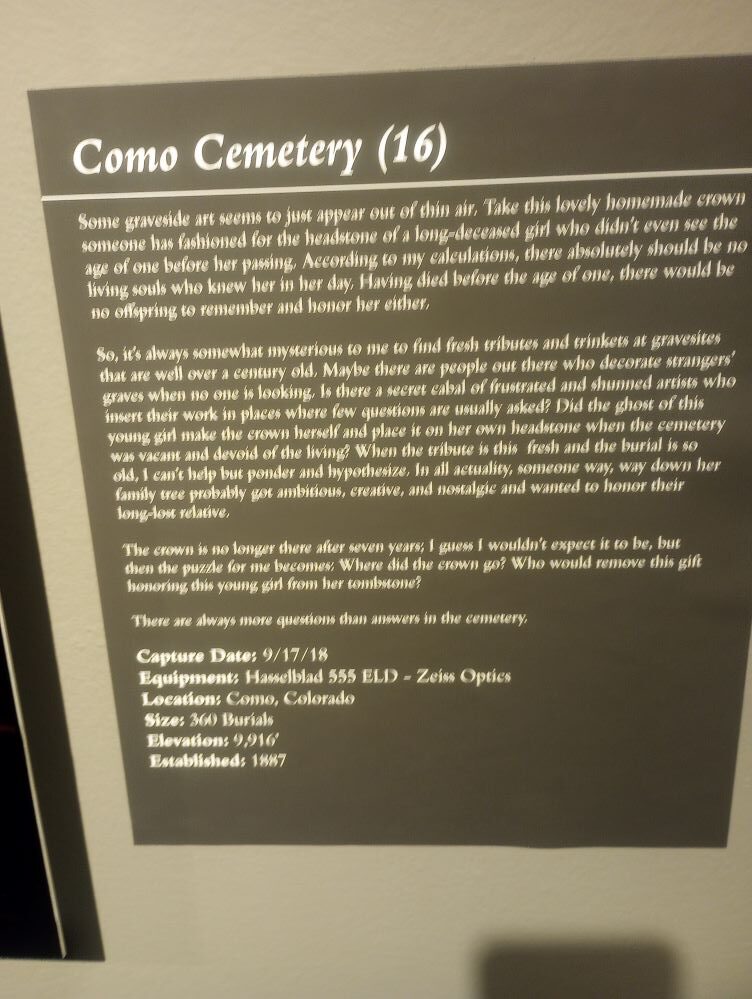


That is a nice general guide. The theater interior is pretty cool looking, especially the ceiling and the areas above…